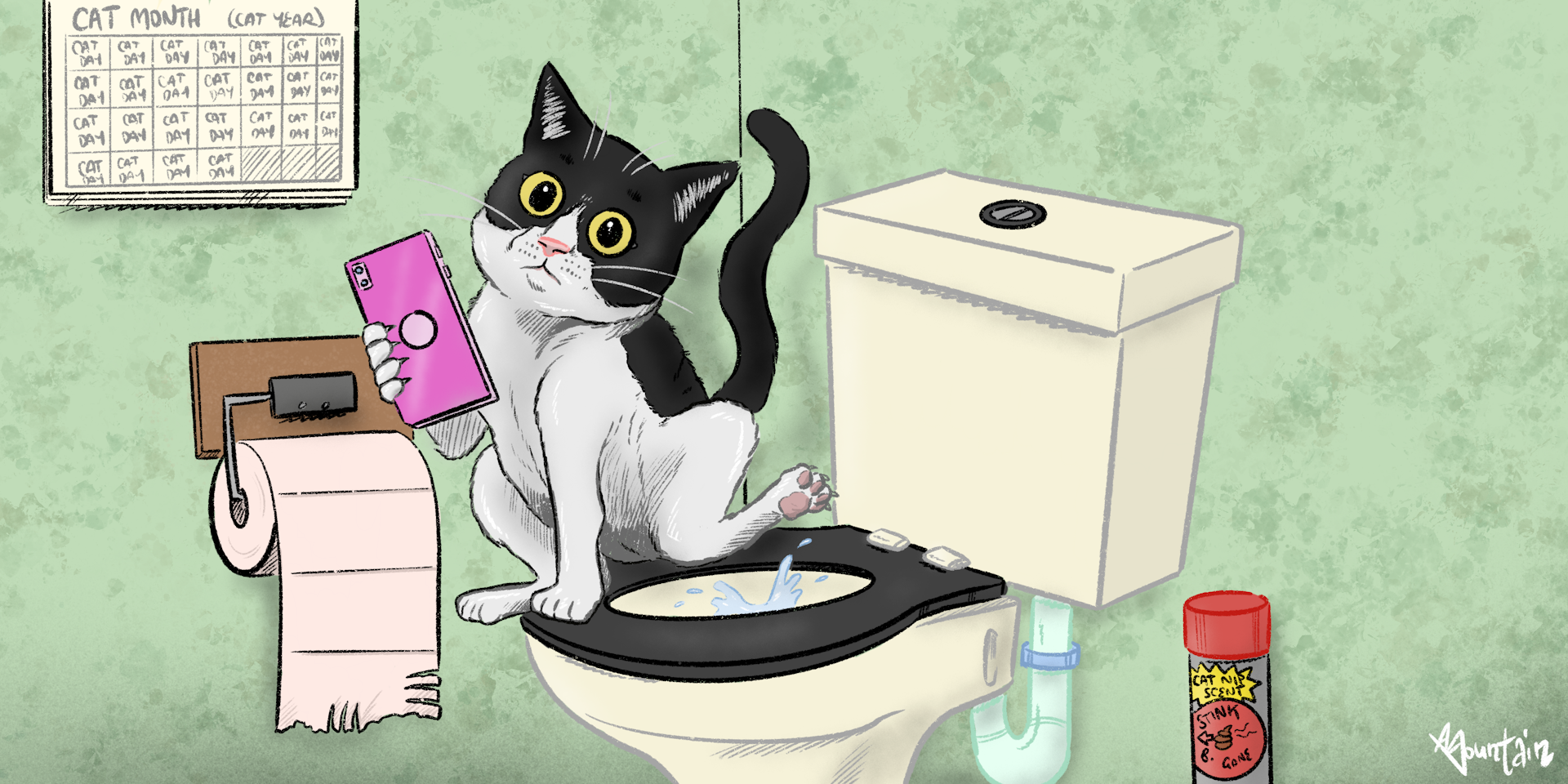Avoid Clogs and Damage: Never Flush Cat Poop Down Your Toilet - Professional Insights
Avoid Clogs and Damage: Never Flush Cat Poop Down Your Toilet - Professional Insights
Blog Article
They are making a few good annotation on How to Dispose of Cat Poop and Litter Without Plastic Bags overall in this content followed below.

Introduction
As cat owners, it's important to bear in mind exactly how we get rid of our feline buddies' waste. While it might seem convenient to purge cat poop down the bathroom, this practice can have detrimental effects for both the environment and human health.
Environmental Impact
Purging feline poop presents harmful pathogens and bloodsuckers right into the water, posturing a considerable threat to water environments. These pollutants can negatively influence aquatic life and compromise water quality.
Health Risks
In addition to ecological worries, purging cat waste can likewise pose health and wellness risks to humans. Pet cat feces might consist of Toxoplasma gondii, a parasite that can cause toxoplasmosis-- a possibly extreme health problem, especially for pregnant females and people with weakened body immune systems.
Alternatives to Flushing
Luckily, there are safer and extra accountable ways to dispose of feline poop. Consider the adhering to alternatives:
1. Scoop and Dispose in Trash
One of the most common approach of throwing away pet cat poop is to scoop it into an eco-friendly bag and toss it in the garbage. Make sure to make use of a devoted trash scoop and get rid of the waste promptly.
2. Use Biodegradable Litter
Select biodegradable cat litter made from materials such as corn or wheat. These clutters are eco-friendly and can be securely taken care of in the garbage.
3. Hide in the Yard
If you have a backyard, consider burying cat waste in a marked area far from vegetable yards and water sources. Make sure to dig deep enough to stop contamination of groundwater.
4. Install a Pet Waste Disposal System
Purchase a family pet waste disposal system specifically created for feline waste. These systems use enzymes to break down the waste, decreasing smell and ecological impact.
Verdict
Accountable pet possession extends past providing food and sanctuary-- it also includes correct waste administration. By avoiding flushing feline poop down the commode and opting for alternate disposal approaches, we can minimize our environmental impact and shield human health and wellness.
Why You Should Never Flush Cat Poop Down the Toilet
A rose by any other name might smell as sweet, but not all poop is created equal. Toilets, and our sewage systems, are designed for human excrement, not animal waste. It might seem like it couldn’t hurt to toss cat feces into the loo, but it’s not a good idea to flush cat poop in the toilet.
First and foremost, assuming your cat uses a litter box, any waste is going to have litter on it. And even the smallest amount of litter can wreak havoc on plumbing.
Over time, small amounts build up, filling up your septic system. Most litter sold today is clumping; it is made from a type of clay that hardens when it gets wet. Ever tried to scrape old clumps from the bottom of a litter box? You know just how cement-hard it can get!
Now imagine just a small clump of that stuck in your pipes. A simple de-clogger like Drano isn’t going to cut it. And that means it’s going to cost you big time to fix it.
Parasitic Contamination
Believe it or not, your healthy kitty may be harboring a nasty parasite. Only cats excrete Toxoplasma in their feces. Yet it rarely causes serious health issues in the cats that are infected. Most people will be fine too if infected. Only pregnant women and people with compromised immune systems are at risk. (If you’ve ever heard how women who are expecting are excused from litter cleaning duty, Toxoplasma is why.)
But other animals may have a problem if infected with the parasite. And human water treatment systems aren’t designed to handle it. As a result, the systems don’t remove the parasite before discharging wastewater into local waterways. Fish, shellfish, and other marine life — otters in particular — are susceptible to toxoplasma. If exposed, most will end up with brain damage and many will die.
Depending on the species of fish, they may end up on someone’s fish hook and, ultimately on someone’s dinner plate. If that someone has a chronic illness, they’re at risk.
Skip the Toilet Training
We know there are folks out there who like to toilet train their cats. And we give them props, it takes a lot of work. But thanks to the toxoplasma, it’s not a good idea.

I ran across that page about Don’t flush cat feces down the toilet when surfing around the internet. Sharing is nice. One never knows, you could be helping someone out. We take joy in reading our article about How to Dispose of Cat Poop and Litter Without Plastic Bags.
Call Today Report this page